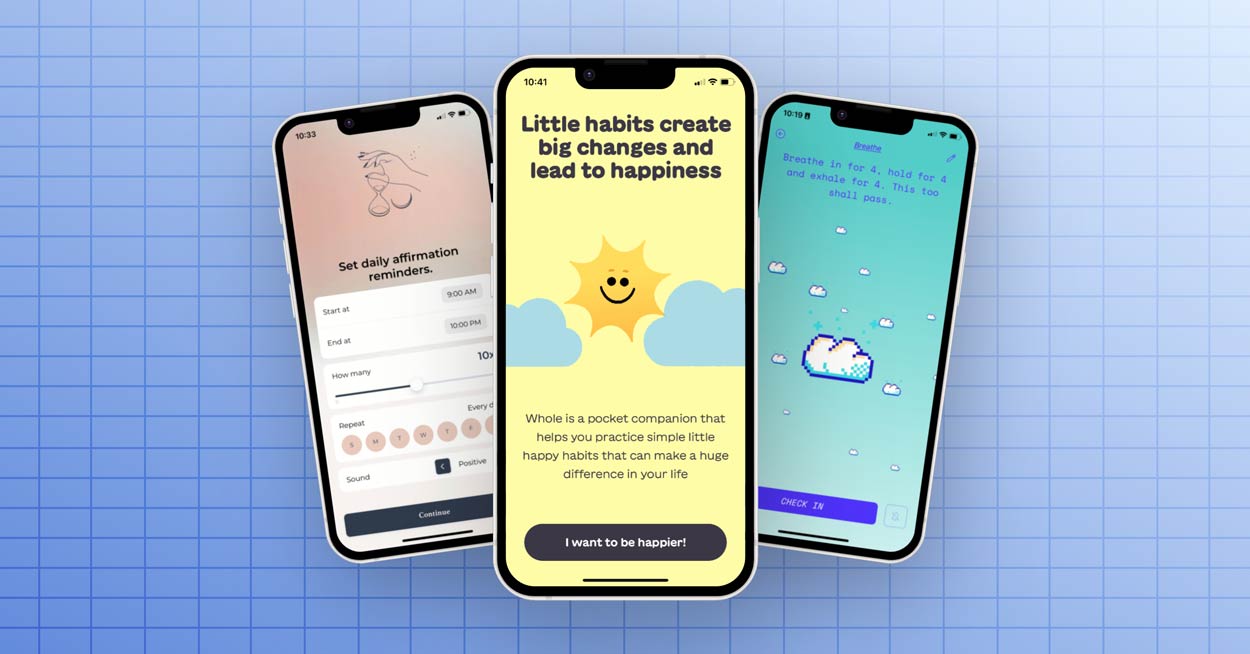Image Credit: Good Good Good.co
In an era of a social media driven world, there is increasing pressure to “unplug” from social media completely. In an effort to make the social media detransition easier, many have resorted to self care apps which aim to “improve one’s overall wellbeing and be happier through better self-esteem and less stress”(Tangerine App, 2024). There are over 350 000 wellness apps released every year, with 250 apps released daily (MindSea Team, YEAR). Calm, one of the most well known mental health apps, has over 100 million downloads (Leamey, 2024). While many people swear by using self-care apps to replace their daily screen time, with the staggering amount of growth in the self care app industry it prompts the question of whether these apps actually work.
Mental health apps are often used in order to target treatment gaps within individuals who do not have the means necessary to access adequate treatment, whether this is financial or transportation barriers. According to a study from the National Library of Medicine, “smartphone based mental health apps represent a unique opportunity to expand the availability and quality of mental health treatment…as cost-effective and scalable solutions to addressing the mental health treatment gap” (Chandrashekar, 2018).
Studies have shown that smartphone-based mental health apps have proved useful to managing depressive symptoms in comparison to those who do not utilize mental health apps. These apps employ cognitive behavioural therapy (CBT), mindfulness training, mood monitoring, and cognitive skills training to treat depressive symptoms, and have been found to be more useful with those experiencing mild to moderate depression, rather than severe (Chandrashekar, 2018).
Anxiety is a mental illness that can be treated as efficiently with mental health apps as in-person therapy sessions. Studies have shown that smartphone delivered interventions have caused reductions in total anxiety within patients. Anxiety apps “help patients build core CBT knowledge and skills while reducing reliance on traditional face-to-face sessions…apps can be used to deliver a range of intervention strategies, provide information about mental health, and enable real-time communication with health care professionals” (Balaskas et al., 2021).
Although Schizophrenia is mainly managed through the use of antipsychotic medications, many treatments fail to address the behavioural symptoms of schizophrenia. Some psychosocial interventions such as cognitive training and education on illness management can be treated through the use of smartphone apps. Utilizing smartphone apps for treating symptoms of schizophrenia have shown high adherence, positive user experience, and broad ranging clinical benefits (Firth et al., 2015).
The mental health app market is an industry that is rapidly increasing, with a survey on 15 000 mental health apps revealing that 29% percent were focused on mental health diagnosis, treatment, or support. While smartphone-based treatments have proven to be a cost-effective approach to address the mental health provider shortage, it is important to remember that the most effective method of treatment is to meet with a certified healthcare provider.
References:
Balaskas, A., Schueller, S. M., Cox, A. L., & Doherty, G. (2021, October 6). The functionality of mobile apps for anxiety: Systematic search and analysis of engagement and tailoring features. The Functionality of Mobile Apps for Anxiety. https://www.ncbi.nlm.nih.gov/pmc/articles/PMC8529472/
Chandrashekar, P. (2018, March 23). Do mental health mobile apps work: Evidence and recommendations for designing high-efficacy mental health mobile apps. Do Mental Health Mobile Apps Work. https://www.ncbi.nlm.nih.gov/pmc/articles/PMC5897664/
Firth, J., & Torous, J. (2015, November 6). Smartphone apps for schizophrenia: A systematic review. Smartphone Apps for Schizophrenia. https://www.ncbi.nlm.nih.gov/pmc/articles/PMC4704940/
Leamy, T. (2024, January 1). Best mental health apps of 2024. Best Mental Health Apps of 2024. https://www.cnet.com/health/mental/7-best-mental-health-apps-to-start-using-today/
OU, B. (2020, January 18). Tangerine: Self-care & goals. App Store. https://apps.apple.com/us/app/tangerine-self-care-goals/id1468882685
Team, M. (2023, July 11). How mobile health apps are improving healthcare: Saving costs, saving lives. How Mobile Mental Health Apps Are Improving Healthcare: Saving Costs, Saving Lives. https://mindsea.com/health-apps/
Note: The Free Your Mind Mental Health Society is an independent youth-led organization. The contents of this blog are not intended to be a substitute for professional medical advice, diagnosis, or treatment. Always seek the advice of your physician or another qualified health provider with any questions you may have regarding a medical condition. In the event of a medical emergency, please call your doctor or 911 or other local emergency numbers immediately.




